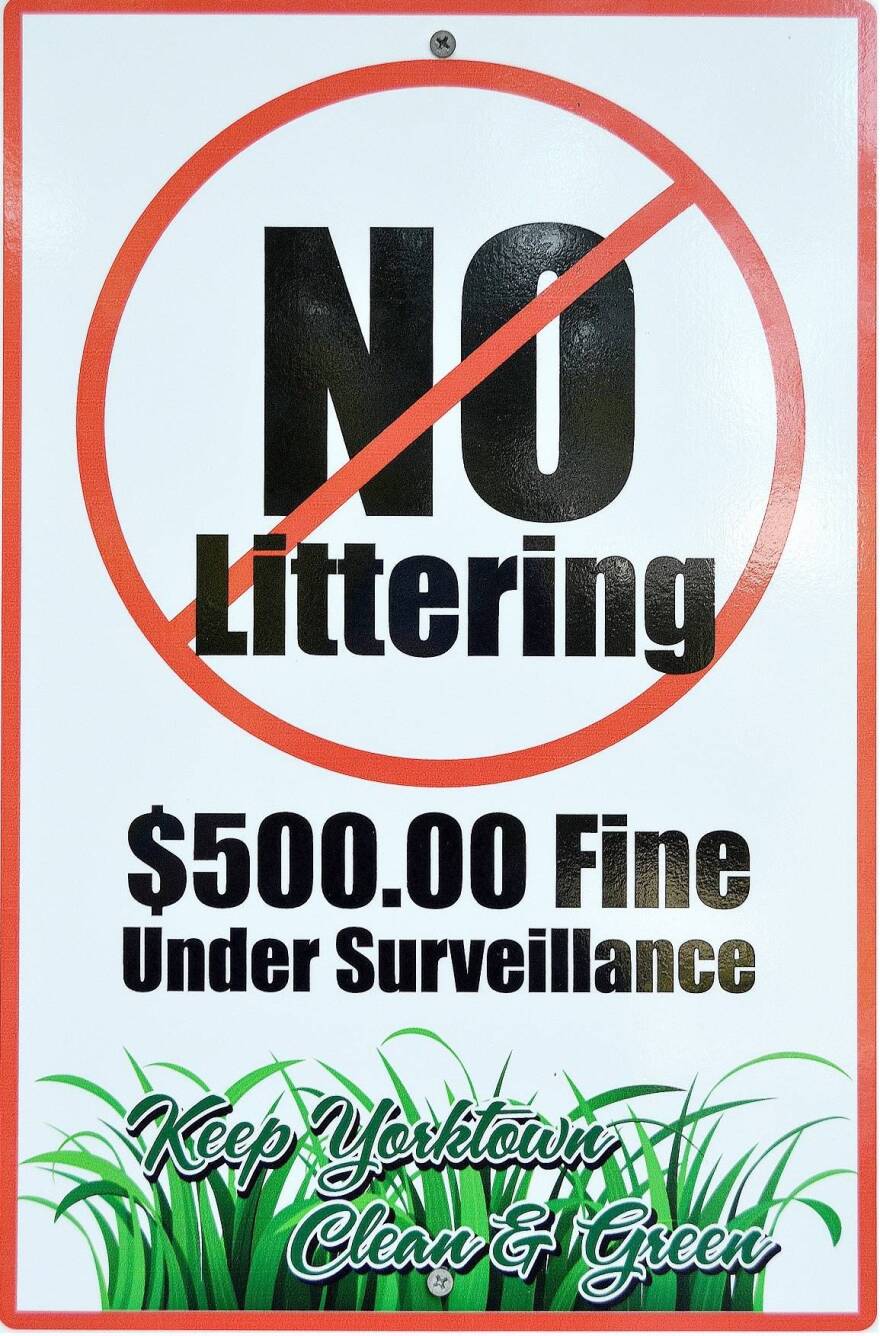The first alleged violator has been caught under a camera littering law in northern Westchester County. The supervisor of Yorktown says the law is the first of its kind in the U.S. and will go a long way in helping the town’s “Do Not Litter” campaign.
“We were experiencing a chronic littering problem in some of the access roads into town,” Grace says. “And it becomes very difficult to actually catch someone in the act, so we came up with what we think is a very creative and innovative solution, and it basically assesses a civil penalty against the registered owner of the vehicle from which littering comes.”
And that penalty can be up to $500.
“The thing about the law is it allows for both the public cameras and, or private citizens to take picture,” says Grace. “The camera doesn’t have to be owned and operated by the town or the municipality but it can be owned and operated by anyone.”
He says the littering problem is evident in certain neighborhoods. Grace would say only that cameras will continue going up, but did not want to offer specifics and jeopardize the law’s effectiveness. He says the first photo capture of an alleged violator was where a trail camera recorded the driver of a Volkswagen Jetta traveling on Wood Street throwing a bag of garbage from the driver side window onto the road. Grace, an attorney, says the license plate was clearly visible and the matter was turned over to the Town Code Enforcement Officer and the Yorktown Police Department. The Jetta was registered to a Mahopac resident who was advised in writing by the code enforcer of the littering and potential fine. If found liable, the accused person will be required to pay the penalty as well as attorney's fees incurred by the town. Grace says the town has not yet heard from the driver.
“And it actually costs us significant resources in time and dollars in cleaning these places up all the time. We have one where, actually where this car was caught is a chronic spot where the road is so narrow we have to shut down the road. So we have to get a crew out there to clean up all the time and shut down the road in order to do it,” Grace says. “And so this was one of our real hotspots. Actually this was one of the spots where actually prompted the whole legislation to begin with because it’s impossible to patrol it, impossible to set up… because there’s no area off the road to watch or patrol the road.”
He says the town fields calls on a weekly basis to clean up the litter. The law went into effect in June and signs went up a few months ago stating “No Littering - $500.00 Fine - Under Surveillance.” Caitlin O’Brien is environmental health associate with Environmental Advocates of New York.
“So litter is obviously a huge continuing problem that causes great harm to our environment and many communities today, if not all of them, do have laws that prohibit littering. However, the problem historically has been the lack of enforcement. So without any accountability people will continue to litter which will lead to continued environmental damages, financial burdens on taxpayers and harm to wildlife,” O’Brien says. “We give credit to the public officials who recognize that enforcement is crucial to actually stopping litter, and we look forward to seeing how the results of this creative project will play out over the coming years.”
Cecile Carson is vice president for Litter and Affiliate Relations with nonprofit Keep America Beautiful.
“We commend and applaud the efforts to create this new ordinance that really helps individuals realize that what they’re doing is the wrong thing,” Carson says. “Our research show that most people realize littering is wrong and they won’t do it in front of someone else.”
Or, if they think they are under surveillance. Stamford, Connecticut-based Keep America Beautiful has been on the nation’s litter trail for decades, turning out with the Ad Council an iconic PSA (public service announcement) in 1970.
Again, Carson.
“So the effort to install cameras is something that has been done successfully in a number of jurisdictions in dealing with illegal dumping issues especially and, in some cases, littering,” Carson says. “But I understand that this is a very comprehensive look at addressing the issue and making people aware of it, very much like red light cameras, that hopefully people will realize that this is not something that if you just do it, it’s OK, that it’s not.”
Carson says it’s the combination of tactics employed in Yorktown’s litter law that sounds unique. She believes that enabling citizens to catch litterers on camera coupled with imposing a civil penalty take the law to new heights. Again, Supervisor Grace.
“It is a problem only in certain areas. And I think what happens is on these kind of country roads where there’s no groomed properties along the roadside, nobody has any problem throwing their litter out of their car, or dumping. They aren’t going to do it on somebody’s front yard,” Grace says. “So it really gets into these arterial roads and these access roads into town that it becomes a problem. And we do a spring cleanup and I can’t tell you how many tons of roadside litter we pick up every year. It’s absolutely incredible the actual volume.”
Grace says he saw a bunch of old appliances dumped roadside just this week.






